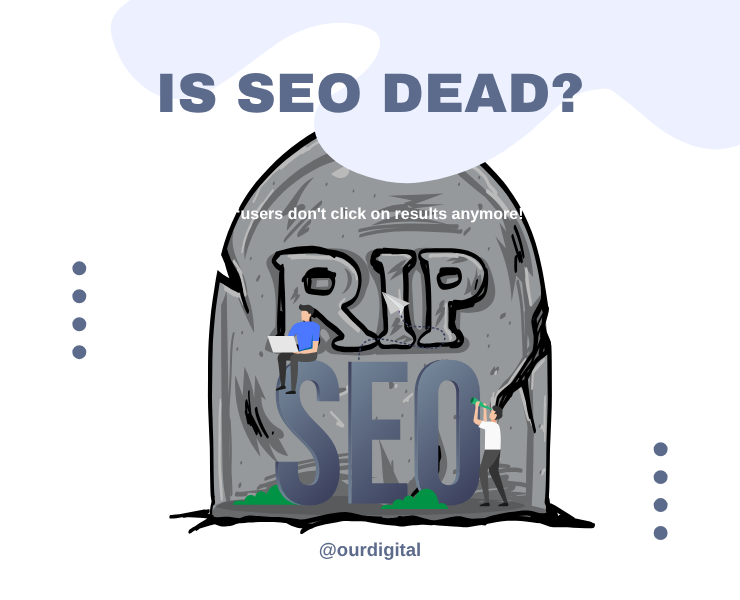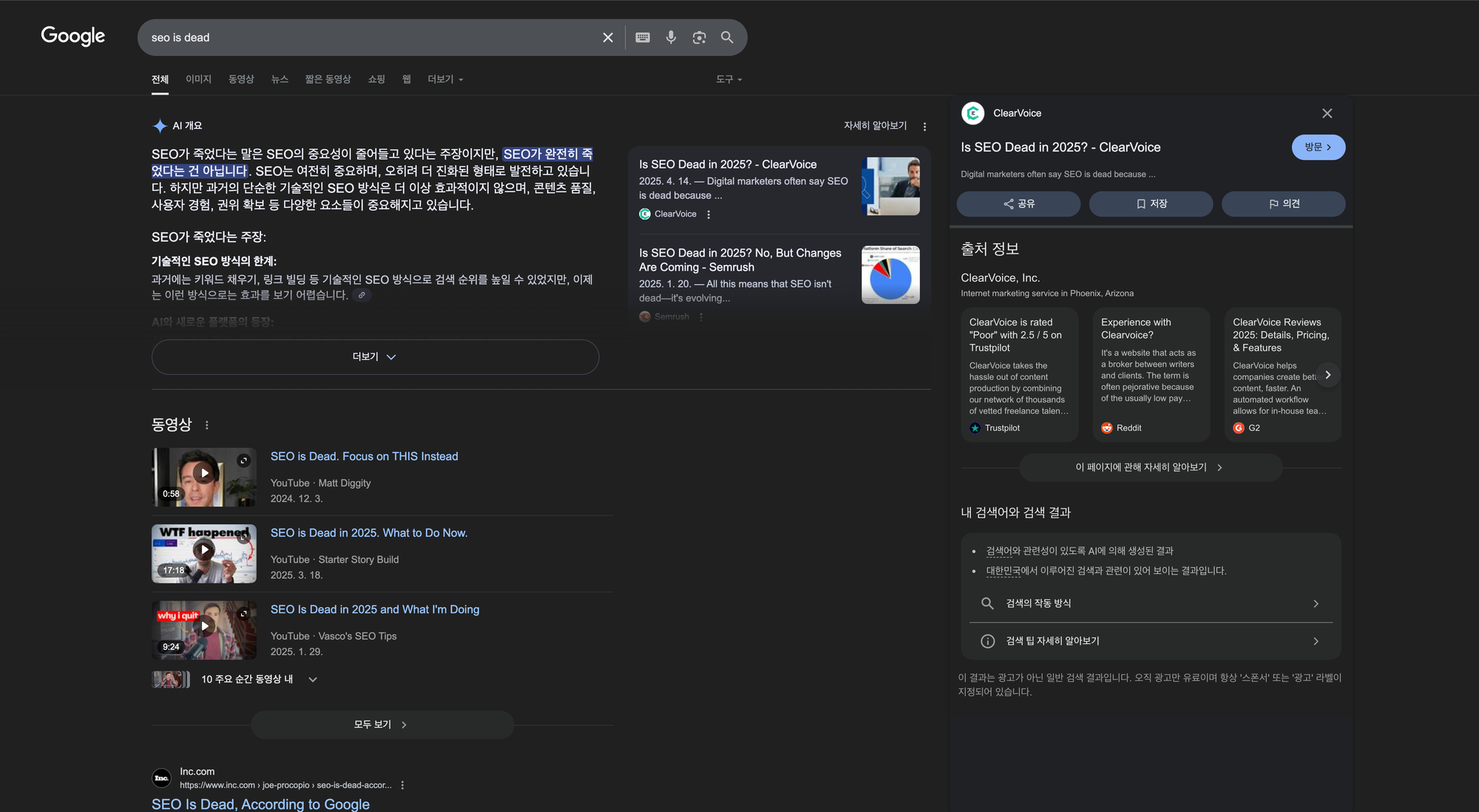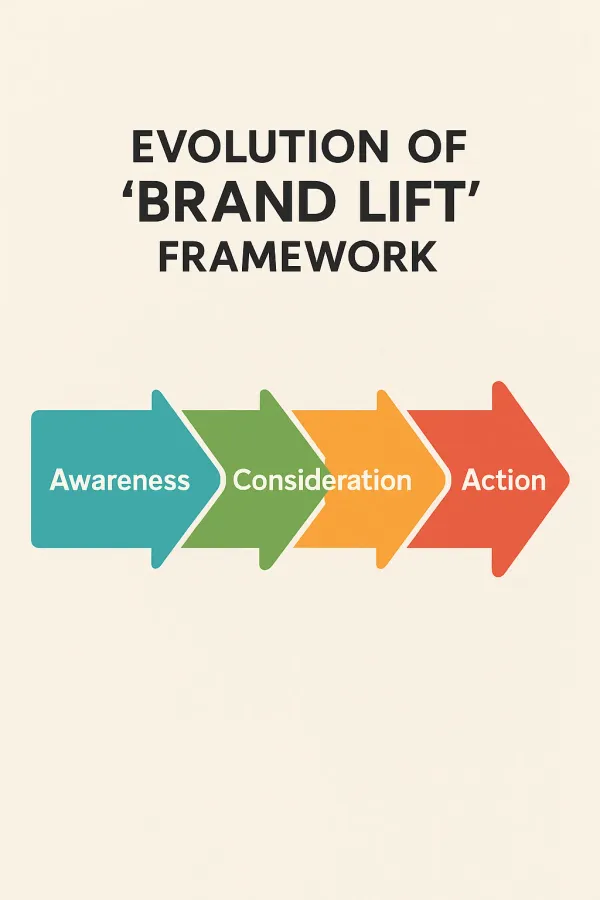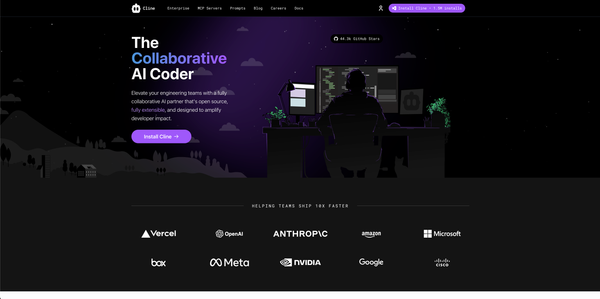The Persistent Vitality of SEO: Why Reports of Its Death Are Greatly Exaggerated

The internet is full of death announcements for SEO. A quick search shows tons of content claiming SEO is finished: YouTube videos with panic-inducing thumbnails, blog posts with scary headlines, and industry articles picking apart what used to be digital marketing's favorite child. The story sounds simple: AI has completely changed search, users don't click on results anymore, and the old ways of getting found online are now useless.

Here's the list of the 1st search result page of "SEO is dead" in 2025.
- https://www.youtube.com/shorts/cM7hAa6doR8
- https://www.youtube.com/watch?v=IdYz\_X86ZFA
- https://www.youtube.com/watch?v=_8TPvR2ptaA
- https://www.inc.com/joe-procopio/seo-is-dead-according-to-google/91193051
- https://neilpatel.com/blog/seo-dead/
- https://www.clearvoice.com/resources/is-seo-dead/
- https://www.coredna.com/blogs/is-seo-dead
- https://www.inc.com/joe-procopio/is-seo-dead-because-that-would-make-a-lot-of-sense/91064136
- https://premierecreative.com/blog/is-seo-dead-2025/
But like Mark Twain's famous response to his own death rumors, reports of SEO's death have been greatly exaggerated.
The Evolving Definition of Success
The confusion comes from not understanding what SEO means in 2025. Critics point to fewer click-throughs, AI-generated search summaries, and people preferring videos over text as proof that SEO is dead. They're seeing real changes, but drawing the wrong conclusions.
The traditional "blue link" system that ruled search for over twenty years is getting weaker. Google's AI Overviews, ChatGPT working with Bing, and voice search have created new ways for people to get information. Users increasingly get answers without clicking through to websites, leading to what some call the "zero-click apocalypse."
But this change means evolution, not death. SEO has always been about adapting—surviving algorithm updates, mobile-first indexing, local search changes, and countless other big shifts. The current AI disruption is just the latest chapter in this ongoing story of adaptation.
The New Search Landscape
Today's search behavior shows a more complex picture than the doom-and-gloom crowd suggests. While people do get more information directly from AI-powered search results, they haven't stopped needing trustworthy, complete sources. In fact, AI systems rely on high-quality content to create their responses—content that still needs to be found and indexed by search engines.
The shift toward videos, podcasts, and interactive content doesn't kill SEO principles; it expands them. YouTube is the world's second-biggest search engine. TikTok has become a discovery platform for younger people. Podcast transcripts show up in search results. These platforms all use visibility algorithms that work like traditional SEO: relevance, authority, user engagement, and quality signals.
Think about voice search and AI assistants. When someone asks Alexa or Siri a question, the answer often comes from content that ranks well in regular search results. The same optimization principles that made a website discoverable through text search—clear structure, relevant keywords, helpful content—now make it discoverable through voice queries.
The Unchanging Foundation: Visibility
Under all the technology changes lies one constant truth: SEO has always been about visibility. The name might say "search engine optimization," but the real discipline addresses a basic human need—the desire to be found by people looking for what we offer.
This principle works across all platforms and technologies. Whether someone finds your content through Google's traditional search results, YouTube's algorithm, LinkedIn's feed, or a podcast recommendation, the same core factors determine success: relevance to what people need, quality information, consistent publishing, and authentic voice.
The businesses doing well in this new landscape understand that SEO isn't about tricking search engines—it's about creating real value that search engines want to show people. They've shifted from keyword stuffing to keyword research that guides comprehensive content strategies. They've moved from link schemes to building real relationships that naturally generate mentions and references.
The Return of Storytelling
Perhaps the most encouraging development in this supposed "post-SEO" era is the renewed focus on storytelling and authentic content creation. The rise of AI-generated content has made human insight, personal experience, and original perspectives more valuable. Search engines are getting better at identifying and rewarding content that shows real expertise, authority, and trustworthiness—Google's E-A-T criteria, now expanded to E-E-A-T (adding "Experience").
This shift favors creators who understand that SEO is not just a technical exercise but a creative discipline. The most successful content in today's search landscape combines technical optimization with compelling stories. It answers questions while telling stories. It provides information while building relationships. It solves problems while establishing authority.
The format matters less than the substance. Whether it's a detailed blog post, an informative video, an engaging podcast, or an interactive tool, successful content in the AI era shares common traits: it's genuinely helpful, uniquely informed, and authentically presented.
Adaptation, Not Apocalypse
The SEO practitioners succeeding in this new landscape are those who embrace change rather than fight it. They optimize for featured snippets knowing these might be read without clicks. They create video content understanding that YouTube SEO follows different rules than web search. They develop multimedia strategies that work across platforms while keeping consistent messaging and branding.
They also recognize that traditional metrics—rankings, click-through rates, organic traffic—are changing. Success might be measured in brand mentions, cross-platform engagement, voice search visibility, or inclusion in AI training data. The goal stays the same: making sure that when people need what you offer, they can find you.
The Future of Being Found
Looking ahead, SEO's future lies not in death but in growth and expansion. The basic human need to discover and be discovered ensures that optimization—in whatever form—will remain essential. The specific tactics will keep evolving, but the strategic need endures.
The organizations that thrive will be those that view SEO not as a set of technical tricks but as a complete approach to digital visibility. They'll create content worth finding, build relationships worth mentioning, and establish authority worth citing. They'll understand that in an attention economy, being discoverable isn't just helpful—it's essential for survival.
SEO isn't dying; it's growing up. It's leaving behind its purely technical teenage years and embracing a more mature understanding of what it means to be valuable in an information-rich world. The future belongs not to those who can game the system, but to those who can genuinely serve their audiences across whatever platforms and technologies emerge.
In this light, the reports of SEO's death aren't just early—they're completely wrong. As long as people look for information and businesses need to be found, the principles behind search engine optimization will remain not just relevant, but vital.
The game has changed, but the game continues. And those who understand the new rules have never had better opportunities to win.



